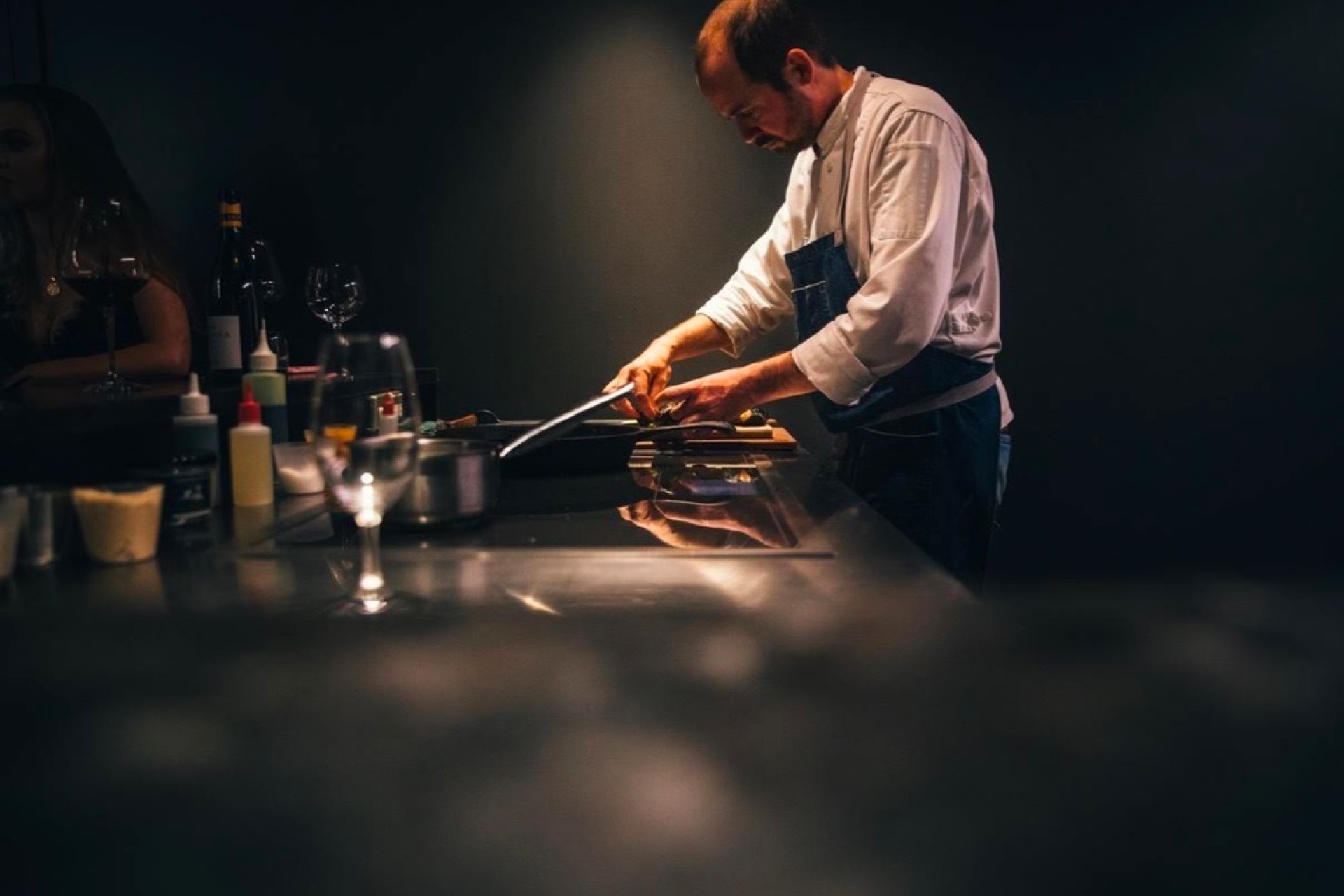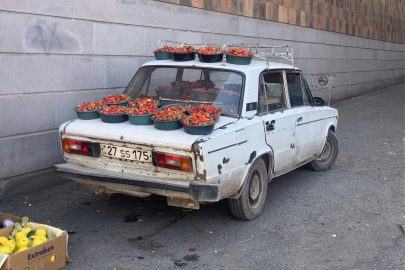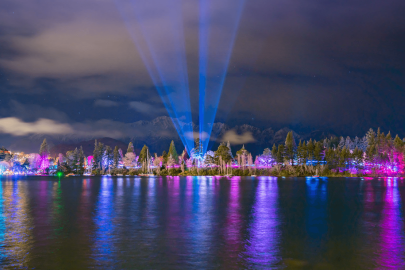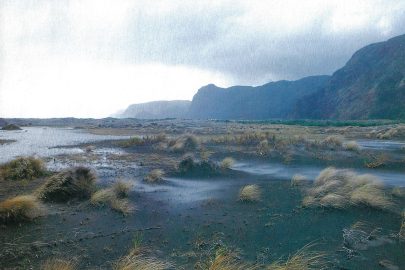Jan 16, 2024 Travel
Ōtautahi Christchurch is no longer the gateway to the south. It’s the final stop. Its thriving industries – agriculture, education, technology, business – draw in a specific type of talent: big hitters ready to calm down. The 1,500 people moving to Canterbury each month come for a lifestyle unattainable anywhere else in New Zealand.
Here is the opportunity to live in a rapidly-developing city (the second-largest in the country, sorry Wellington) and have a commute shorter than 15 minutes. Chefs here have lifestyles that allow them time to experiment, and fresh produce – wild-hunted, foraged, farmed – is 10 minutes from their doorstep. This city is overflowing with flesh and chefs ready to feed its growing population.
London-raised Simon Levy never intended to move to Christchurch. Until 2013 he’d been working at London restaurants including Claridge’s, The Ivy, and Gordon Ramsey’s The Warrington. His Kiwi wife, Lisa, wanted to come home.
“We were visiting for six weeks,” he says. The plan was to eventually settle in Hawke’s Bay. But those weeks turned into a year, and then another, and over a decade later his restaurant Inati is the go-to for fine dining in Christchurch.
Levy presents us with gurnard escabeche with courgettes and broad beans, fresh asparagus accented with a fermented version of itself, miniature crumpets with curried egg and fried whitebait, octopus with cashew nut cream – all assembled in front of our eyes in the open kitchen that takes centre stage at Inati. He torches a dry roast duck before slicing and plating it for the many parties seated in a U-shape around the kitchen to share.
That’s what”inati” means: to share. The dishes, the long bench around Levy and his team, and the wine. Every two dishes Levy pours us a new glass, calculated to pair well but, more importantly, bought from someone he trusts. “Every wine here has sentimental value to me,” he says.
In tonight’s glasses are one Pisa Range Estate Riesling and two Pegasus Bay wines; a Chardonnay and another fortified red for dessert called Requiem. These are wineries Levy’s visited, made by people he cares about.
A five-minute drive away is another restaurant with an appreciation for local wine: Gatherings. Chef and owner, Essex-born Alex Davies, has a menu listing plenty of Waipara bottles; and a bit of Nelson. There’s a wine created by Davies himself, in conjunction with North Canterbury’s Bryterlater vineyard: an organic rosé perfect for summer.
On the side of each wine glass is the print of a flounder. Gatherings was originally a vegetarian restaurant, but became proudly pescetarian in 2018. “I realised if I’m representing Aotearoa in cuisine, kaimoana is an integral part of that landscape,” Davies says.
The meal he’s provided us is centred around a wood-roasted lemon sole, liberally topped with a sour cherry sauce and little neck clams. Macadamia-topped asparagus, charred courgettes with cucumber and gooseberry dressing, and a surprisingly moreish cos and endive salad surround it.
He also delivers us Gathering’s take on pigs in a blanket as a Christmas surprise: langoustines draped in blankets of lardo, paired with a sherry mayo. It sounds bizarre, but it works. It’s cosy.
The words “graze like you would at home” are charmingly printed atop the short, extremely seasonal menu. And it does taste like the best home-cooked meal you’ve ever had.
Davies says the whole fish-centrepiece-and-hearty-veg-sides is a concept born out of lockdown. “I’ve never cooked for my family so much [as during lockdown],” he says. “It was the sharing experience that worked. I realised that’s how people like to eat.” We graze as Davies shares a wine with us, totally at home.
Over the hill in uber-cool Lyttleton, you can dine in someone’s literal home. Mapu is a test kitchen in Lyttelton serving six lucky people at a time, and Giulio Sturla is everything there: chef, front of house, sommelier, marketer. There are no opening hours, no menu; no restaurant. Sturla stumbled upon this form of hospitality during the pandemic. He wanted to keep cooking, but knew it had to be for fewer people.
“I didn’t know I was going to be here today, but this is a business model,” he says. Mapu – named for the indigenous Mapuche people of his home country, Chile – uses local produce grown from his garden, bought from friends, or foraged.
As a result, the menu at Mapu is different every day. He can make it up based on who’s coming and what he has to hand. On the day I go, our meal includes foraged flowers, sturgeon caviar, oat crackers with a destructive ASMR crunch, Kaikoura merino lamb, and a noodle made from green bananas.
“What is a banana?” Sturla muses. “The starch, sugar, protein, carbohydrates. What can you do with it?” He was keen to make noodles following a trip to Korea. When he landed in Auckland he happened to swing by Kelmarna Gardens and see the banana trees. “I said ‘give me the whole [bunch]’ and I put it in my suitcase.” And now we sit here slurping down banana noodles with flash-fried pāua, pork broth, and chive oil.
Bananas are a global commodity. In Ecuador, where he was raised for part of his childhood, Sturla saw bananas thrown to the pigs. “So I like to serve it with seafood,” he smirks. “The most expensive thing.”
The street food/fine dining divide is smaller in Christchurch. Haute cuisine here is less about pretension and more about doing beautiful things with the incredible local produce. “If you’ve been here to Gatherings a month ago, you haven’t been to gatherings today,” says Davies. “It’s constantly evolving.”
Inati evolves, too: it’s just opened for lunch service, attempting to woo business lunchmen and cruise ship tourists. In September, Levy took time out of pickling asparagus to serve 400 barbequed octopus kofta at Fire on High, a high-heat food market outside central city hipster magnet Smash Palace.
He sold out in an hour and had to pack up. It was the first time the event had been held, but local chefs took to it with gusto. Davies sold out of his 600 oysters in 2 and a half hours. They’d both do it again. “It was a little bit Mad Max-y, but really beautiful at the same time,” he laughs.
That’s Christchurch in a nutshell. The taste in the chaos is, like most things here, born of 2011. “We’re learning to be resilient and evolving and moving,” says Davies. Stability comes in the form of a high bar for quality, and flexibility around everything else.
Sturla, Levy, Davies and the many other talented chefs boiling the broth of nu-Christchurch are re-inventing hospitality by bringing it back to its core: home, sharing, and friendship.
As I chat to my new friends at Mapu, Sturla rummages in the far end of his kitchen, pulling out a fresh Nelson snapper and hewing a large fillet off its left side. A fellow diner gestures at the pots bubbling in front of us and the grapevines outside and the three excitingly-shaped wine glasses we each juggle. “What would you call this?” he wonders.
Sturla calls out from the dark corner he’s bustling in: “manaakitanga!”






